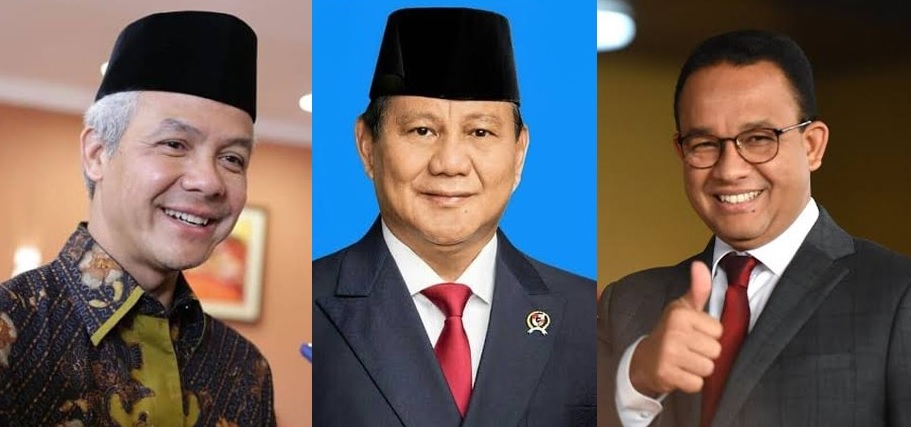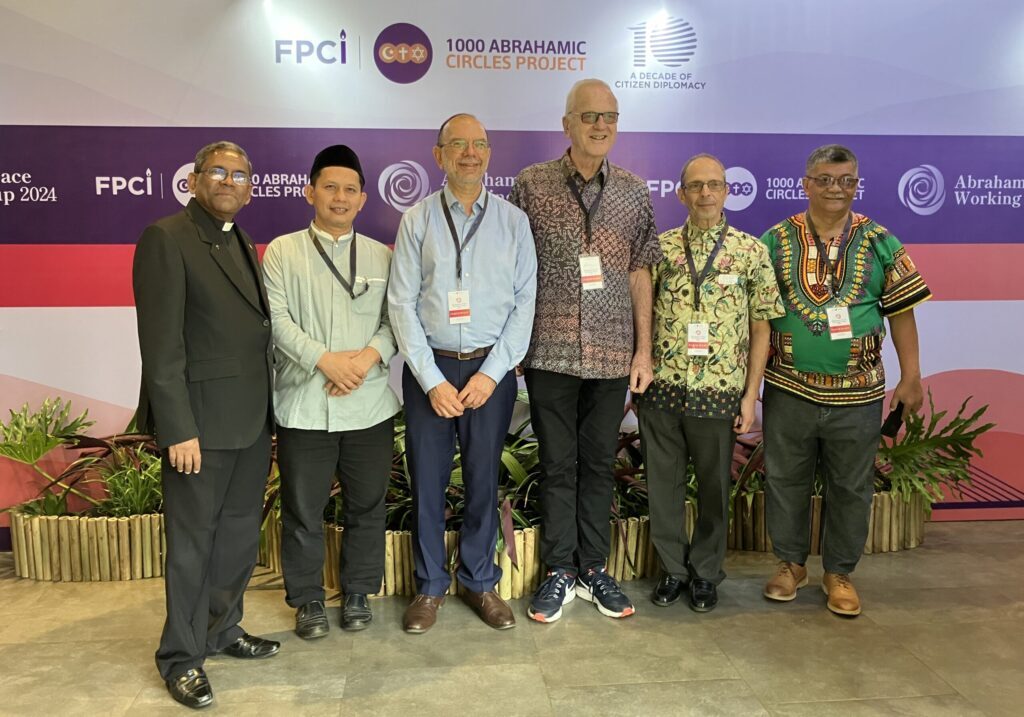Australia/Israel Review
Indonesia’s confusing election campaign
Jun 30, 2023 | Zachary Abuza

Eight months out from the first round of Indonesia’s presidential election, scheduled for February 2024, the three-way race is wide open. The election, the sixth since the restoration of democracy in 1998, is unlikely to be settled in February as no candidate is likely to attain a majority of the vote, prompting a runoff in July.
Indonesia’s Democratic Consolidation
Before we get to the candidates themselves, it’s important to start with a little bit of context.
Indonesia just marked the 25th anniversary of the fall of Suharto and the end of the military-backed New Order regime. Indonesia’s transition to democracy was messy. The country experienced five presidents in as many years. There was intense competition for power between the newly empowered Parliament and the president, and no leader was able to effectively deal with the aftermath of the Asian economic crisis, which led to the collapse of currency and a 13% contraction of the economy in 1998.
Nonetheless, the foundations for Indonesian democracy were laid, including political and economic decentralisation, the freeing of the media, and the end of the military’s direct role in civil administration, known as dwi fungsi. The military returned to barracks and began to professionalise, focusing more on external security. From 2004, the president was directly elected by the public.
Elections have been run well, no easy task, across 17,000 islands in the world’s third-largest democracy. Voter turnout is high, and elections have been free of political violence. Most importantly, there has been the regular and orderly transition of power.
It’s not that there have not been setbacks. The incumbent president Joko Widodo, better known as Jokowi, allowed the independent anti-corruption agency to lose much of its autonomy and some investigative and subpoena powers. Since 2014, the military has been pursuing a national security policy known as bela negara, that has identified secessionism, communism, illicit narcotics, and LGBTQ rights as the greatest threats to Indonesian security. It has been clawing back civilian authorities that it ceded after 1998, most evidently in the 2018 Counter-Terrorism Law, but also in a host of other issues, including food security. The new Penal Code has criminalised cohabitation and made criticism of the presidency illegal. A number of other laws, including the Blasphemy Law, have been used to stifle free speech, repress religious minorities, and target political opponents. And no president has been able to staunch the country’s endemic corruption. 2022 saw a movement to amend the constitution to give Jokowi a third term, though the public pushed back.
In short, no country has done more to consolidate democracy in such a short period of time – but it’s not irreversible.
The Candidates
There are currently three candidates running for the presidency: Minister of Defence Prabowo Subianto, Ganjar Pranowo, and Anies Baswedan. Each has their base of support, and there is no clear front-runner.
All three are statists: none is an outsider looking to fundamentally change Indonesia’s political economy. All will protect the state sector and all are – to varying degrees – protectionist.
Prabowo Subianto, the former son-in-law of Suharto and a Kopassus (special forces) commander, is running for the third time. He was implicated in egregious human rights abuses in East Timor, as well as being involved in the riots in Jakarta’s Chinatown in 1998 that left more than 1,100 dead and hundreds of women raped.
Ostracised from other parties, Prabowo formed Gerindra to contest the 2014 election, which he narrowly lost to Jokowi, receiving 47% of the popular vote. He ran on a clear law-and-order platform, vowing to re-concentrate political authority in Jakarta. He ran again in 2019, again losing to Jokowi, this time by a slightly larger margin, winning 44.5% of votes.
Prabowo’s supporters threatened political violence after the loss – something that he did not explicitly condemn – until Jokowi brought him into the Government as the Minister of Defence.
In that position, Prabowo has been allowed to recapitalise and fund the Indonesian National Armed Forces’ (abbreviated TNI) modernisation program, but with significant amounts of foreign borrowing, something that critics argue the country can ill-afford. He is now under fire for the purchase of 12 ageing Rafale fighter planes from Qatar for some $734.5 million, to bridge the gap until France delivers six new fighters in 2026. Prabowo was recently derided for his high-profile speech at the Shangri-la Dialogue in which he proposed an ill-conceived peace plan in Ukraine that would effectively reward Russia for its aggression.
Prabowo, who had been sanctioned by the US Government for war crimes, has now seen those sanctions waived and has made two trips to the United States, which is keen to bring Jakarta closer as competition with China mounts. This has effectively whitewashed his human rights record.
Anies Baswedan is the former governor of Jakarta, who came to power after the controversial arrest and sacking of Basuki Tjahaja Purnama (known as “Ahok”), the Chinese-Christian governor who was charged with blasphemy, prompting mass street protests. Ahok was jailed for two years in May 2017.
Anies, a US-educated political scientist, is nothing short of ambitious. He spent a lot of time in the United States and studied how to run a Western-style campaign. His governorship ended in 2022, and since then, Anies has been a full-time candidate. He is very close to the Islamist parties, and is the most socially conservative of the candidates.
Ganjar Pranowo, the PDI-P candidate, is Jokowi’s hand-selected successor and the most liberal candidate. He was soaring in the polls a few months ago, with 44% support. But he was hurt by an uproar over Indonesia losing hosting rights for this year’s FIFA Under-20 World Cup after local governors banned Israel.
Ganjar was also weakened by internal PDI-P infighting. The party President, former Indonesian President Megawati Sukarnoputri, has been lobbying for her daughter, Puan, to be the candidate, despite her lacklustre 1% polling.
Ganjar is running a campaign largely on a continuation of Jokowi’s economic-centred policies, but with a bit more focus on the micro-economy. He’s less concerned with courting foreign investment and more interested in fixing potholes and making sure the fruits of economic growth are distributed more evenly.
So Who’s Ahead?
At this point, no candidate has a clear edge.
Polling in Indonesia is notoriously bad. Pollsters tend to be tied to media conglomerates that are often owned by or connected to the politicians themselves. So all polls have to be taken with a grain of salt.
In the latest May polling by the national daily Kompas, Ganjar remains ahead in a three-way race, with 40% of the vote, though down from 44% in January. Prabowo enjoyed 36.8% support, up from 29.1% in January. Anies was third, with 23.2%, down from 26.8% in January, which was when Anies had his highest polling results.
However, in a two-way race, Prabowo is beginning to gain an edge. In January 2023, Ganjar enjoyed a comfortable lead over Prabowo, 56.7% of the vote compared to 43.3%. Yet by May 2023, the two were running at a near dead-heat, with Prabowo now commanding 51.1% of the vote.
Prabowo is definitely gaining at the expense of the other two, but recent gaffes could hurt him. One noticeable thing about Prabowo is that he’s polling well amongst millennials who are too young to have lived through or to recall his flawed record during the New Order regime years. There are definitely attempts to soften his image.
The youth vote – defined as those under 39 – is enormous in Indonesia and is now the dominant voting bloc of 114 million, roughly 60% of the electorate. While one might expect the youth vote to go to Ganjar, the most progressive of the candidates, the country has been becoming increasingly conservative and Islamist. The more progressive urban youth have grown disaffected with Jokowi, whom they felt betrayed the cause of democracy with the passage of several controversial pieces of legislation.
In the first round, Prabowo and Anies will be splitting the votes of the same share of the electorate. But Prabowo enjoys a very comfortable lead over Anies in any two-way race, with some 62% of the vote.
Prabowo could also potentially co-opt Anies and nominate him as his vice president. But it seems unlikely the ambitious Anies, who has been campaigning full-time for over a year, would agree. Ego is clearly a factor, even for a person trailing in third place. But conservative forces could force such a Probowo-Anies alliance. Ganjar has consistently polled significantly better than Anies in any two-way race.
Despite the endorsement of a President who still enjoys very high public approval and has overseen fairly strong economic growth (despite some missteps at the start of the pandemic), Ganjar is unlikely to win in the first round – unless PDI-P is able to buy off a significant number of defections.
A final point – all presidential candidates in Indonesia are nominated by a coalition of parties, not just a single one. But political coalitions are weird in Indonesia and do not reflect the normal grouping that we see in other countries, i.e. centre-left or centre-right. Coalitions in Indonesia tend to span the political spectrum.
Ganjar’s coalition is the most cohesive, with his own PDI-P supported by two centre-left parties. Anies has the support of two centre-left parties, the NasDems and Democrat Party, but also several Islamist parties on the far right. Prabowo’s coalition, likewise, spans the political spectrum.
Right now, the old New Order party machine, Golkar, is up for grabs. As such, it’s hard to predict how the coalitions will shake out, especially after the first round of voting. Moreover, many of the top 15 parties are polling well below the electoral threshold, and may not make it back into the next parliament.
Dr. Zachary Abuza is a Professor at the National War College, in Washington, DC, where he focuses on Southwest Asian politics and security issues, including governance, insurgencies, democratisation and human rights, and maritime security. He is the author of five books on Asian politics.
Tags: Indonesia






